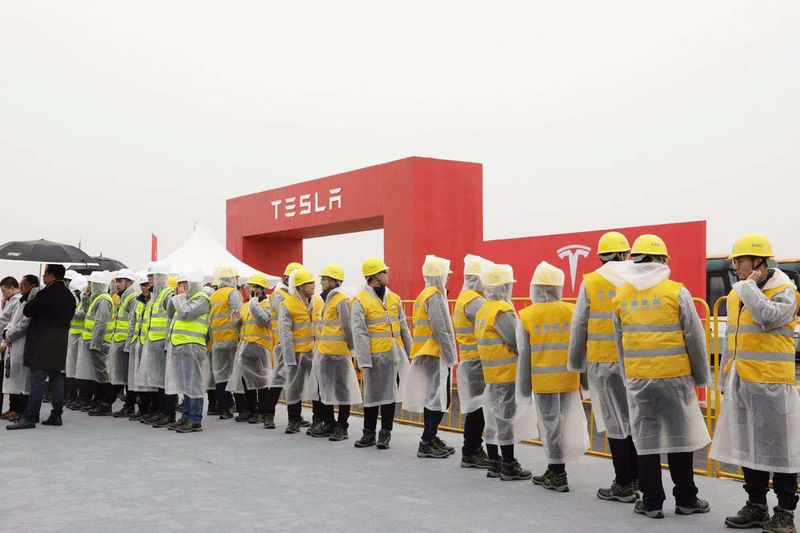Musk unveils new China Gigafactory
January 9, 2019 | Expert Insights

After four years of planning, Tesla Inc. finally broke ground on its planned $5 billion factory in the world’s biggest auto market.
Background
Tesla, Inc. founded in 2003, is an American multinational corporation based in Palo Alto, California, that specializes in electric vehicles, lithium-ion battery energy storage and solar panel manufacturing. In 2008, it released the world’s first electric sports car called the Tesla Roadster. The company's Model S was the world's best-selling plug-in electric car in 2015 and 2016.
In countries like the US, the sale of electric cars has significantly increased. In 2016, the sale of electric vehicles in the US rose by 37%. California, in particular, was the biggest market for electric cars. Globally, the sales of electric vehicles have more than doubled since 2014. This was due to concerns over growing oil prices and the environment.
In July 2017, the governments of UK and France announced that they would be banning diesel and petrol cars and vans by 2040. The nations are hoping to promote the sales of electric vehicles, which are more environmentally friendly. Elon Reeve Musk is the founder, CEO, and lead designer of SpaceX, co-founder, CEO, and product architect of Tesla, Inc.; and co-founder and CEO of Neuralink.
Analysis
Tesla Chief Executive Officer Elon Musk and some Shanghai officials, including Mayor Ying Yong, attended a function at a site near the city kicking off construction of what will be the electric-vehicle maker’s first car-manufacturing facility outside the U.S. While the ceremony marked a new journey for Tesla, it comes at a point where China’s economy is showing signs of strain amid the trade war with the U.S.
In China, the billionaire-entrepreneur faces a car market that probably shrank last year for the first time in at least two decades - as uncertainties surrounding the trade fight between the world’s two biggest economies, signs of weakening domestic demand and a stock-market slump take their toll on consumers. The challenging environment also includes competition from several startups that all want to be like Tesla.
The automaker aims to finish initial construction of the plant this summer and start Model 3 production by the end of the year, according to Musk. The factory, currently just an expanse of muddy fields about two hours from Shanghai, will produce affordable versions of Tesla’s Model 3 and Model Y for Greater China, he said during the visit, which took place on a cold, rainy day. “With the resources here, I think we can build the Shanghai Gigafactory in a record time,” Musk said.
The China plant is the result of years of negotiations with local authorities and marks somewhat of a personal triumph for Musk after a tumultuous 2018. The U.S. Securities and Exchange Commission moved to punish Tesla last year after his infamous “funding secured” tweet, with fines and a settlement that required corporate governance reforms. It also comes on the back of Tesla’s ability to ramp up production of Model 3 sedans, marking the beginning of a turn in market sentiment.
A local Chinese plant may be crucial for Tesla, which is struggling to stave off a potential dip in demand in the U.S., its biggest market, after reductions in federal tax credits for EVs. The company cut the price of all its models by $2,000 to partially offset the loss of the subsidy.
Domestic production would help shield Tesla against import duties as the U.S. and China find ways to wriggle out of the tariff quandary. The two sides have called a truce in their trade fight and are engaged in talks to cool tensions, with China temporarily scrapping a retaliatory 25 per cent tariff on U.S.-made cars starting Jan. 1.
At the height of the dispute, when China imposed the additional duty on American-made autos, Tesla sales in the Asian country -- which is its second-largest market -- plunged to as low as 211 in October, from 3,552 in June, according to data compiled by Bloomberg Intelligence. In November, they clocked 393.
Assessment
Our assessment is that Tesla is trying to overcome the supply shocks and arbitrage varying component prices by setting up a factory in China. We believe that the new Shanghai Gigafactory will help Tesla sell more cars in China and will ensure a stable production line outside the US for exports as well.








Comments